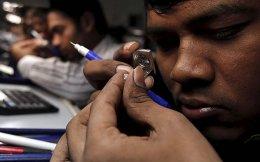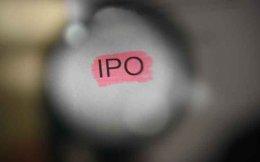In Greek mythology, master craftsmen Daedalus gave a pair of wings to his son Icarus but warned him not to veer away from the flight path. Icarus, however, did not heed the words and rose higher only to see the wax wings melt. He fell to his death.
Indian companies can surely learn a lesson or two from Greek mythology, if the rather short—and in hindsight vainglorious—history of their bold overseas sojourn is any indication. To be sure, Hindu mythology and beliefs do play a role in the boardrooms of Indian family-run firms. It is not unheard of for a deal to be inked on an ‘auspicious’ day chosen by the promoters' grandmother; it doesn't matter if the pact is being signed at the Savoy in London with dealmakers sporting Rubinacci suits.
Tata Group's decision to sell most of its stake in international luxury hotel chain Belmond (nee Orient Express) comes as another ambitious deal gone wrong. It started buying shares around $50 each and, even though it later brought down the average cost of purchase, it pumped in well over $250 million not counting the cost of the failed acquisition bid. In comparison, what it took out (about $62 million) is puny.
To be fair, the Tatas have had a bit of success as well. Having inked the first such blockbuster deal by an Indian business house when they bought Tetley in the UK, they went on to prove the naysayers wrong with their bet on Jaguar Land Rover (JLR). In fact, Tata Motors’ earnings is now driven by JLR.
The group also, to some extent, knew when to 'pull out'. Belmond was one. The Tatas scrapped an ambitious bid to buy the hotel chain after years of chasing it in 2013. While this was at a loss, the burden on the Indian hospitality firm had it gone ahead with a deal would have been heavy.
Long before that deal, the Tatas also gave up what could have been a big plunge into the international beverage business when they decided to sell their 30% stake in Glaceau (at a cool profit) to Coca-Cola.
Undoubtedly, the Indian group did stretch itself when it chased Anglo-Dutch steelmaker Corus, a decision that gave it many newspaper headlines (including the first one by yours truly, almost a decade ago). And it still does, though not for the right reasons. Their General Chemicals' acquisition did not meet the same fate but it did not do wonders with the balance sheet either. They also burnt their fingers in Indonesia where they got half the $1.2 billion they invested in two coal mining companies.
But if one rewinds the history of large overseas deals struck by India Inc at large, there are more skeletons than trophies in the closet. Many gasped under debt—United Spirits (Whyte & Mackay), Avantha Group's Ballarpur Industries Ltd (Malaysian paper mill Sabah), Suzlon (REpower or Senvion) and Amtek (Tekfor) among others.
Many are still trying to generate earnings (read: Bharti Airtel attempting to turn around African assets it bought from Zain), some were smacked by regulatory changes (Dr Reddy's Betapharm buy) and some thought it was just not worth chasing the international dream (Havells, Religare, Fortis). Hindalco, which was quick to pounce upon Novelis for an international play on aluminium, currently trades at a quarter less than what it was nine year ago.
Surely, none of them anticipated the impending commodity cycle bust or the global economy being hit hard by subprime mortgages (The Big Short hit the theatres only in 2015) or the cost of servicing dollar-denominated borrowings as the rupee kept sliding.
It would be incorrect in painting all of them with the same brush. But, in hindsight, at least some cases were victims of poor due diligence. It was outright glamorous to be seen as acquiring a firm overseas (one pan masala label also created an ad around it). Then again, some ended up seriously testing their management bandwidth to navigate the international waters, be it from a regulations perspective or business growth prospects.
This is not to imply that all of those who went ahead and continue to do so (Lupin, Cipla, Rajesh Exports among several others) will meet Icarus's fate. Some are timing it well, having strengthened their balance sheet and digestive capabilities, some seek to leverage backward-forward business linkages and others have gained experience from past misadventures.
But all of them, especially publicly listed companies, need to understand that foreign investors are largely betting on the domestic growth story and, in selective cases, the ability of a local firm to turn around inefficient international businesses. A large inorganic expansion effort does super-size a company's top line and, at times, gives a bragging right related to an international brand. But Indian companies' own fortunes can be on the stake, if they don’t think it through.
(Vivek Sinha is Executive Editor at VCCircle.)
Like this Blog? Sign up for our daily newsletter to get our best reports.






